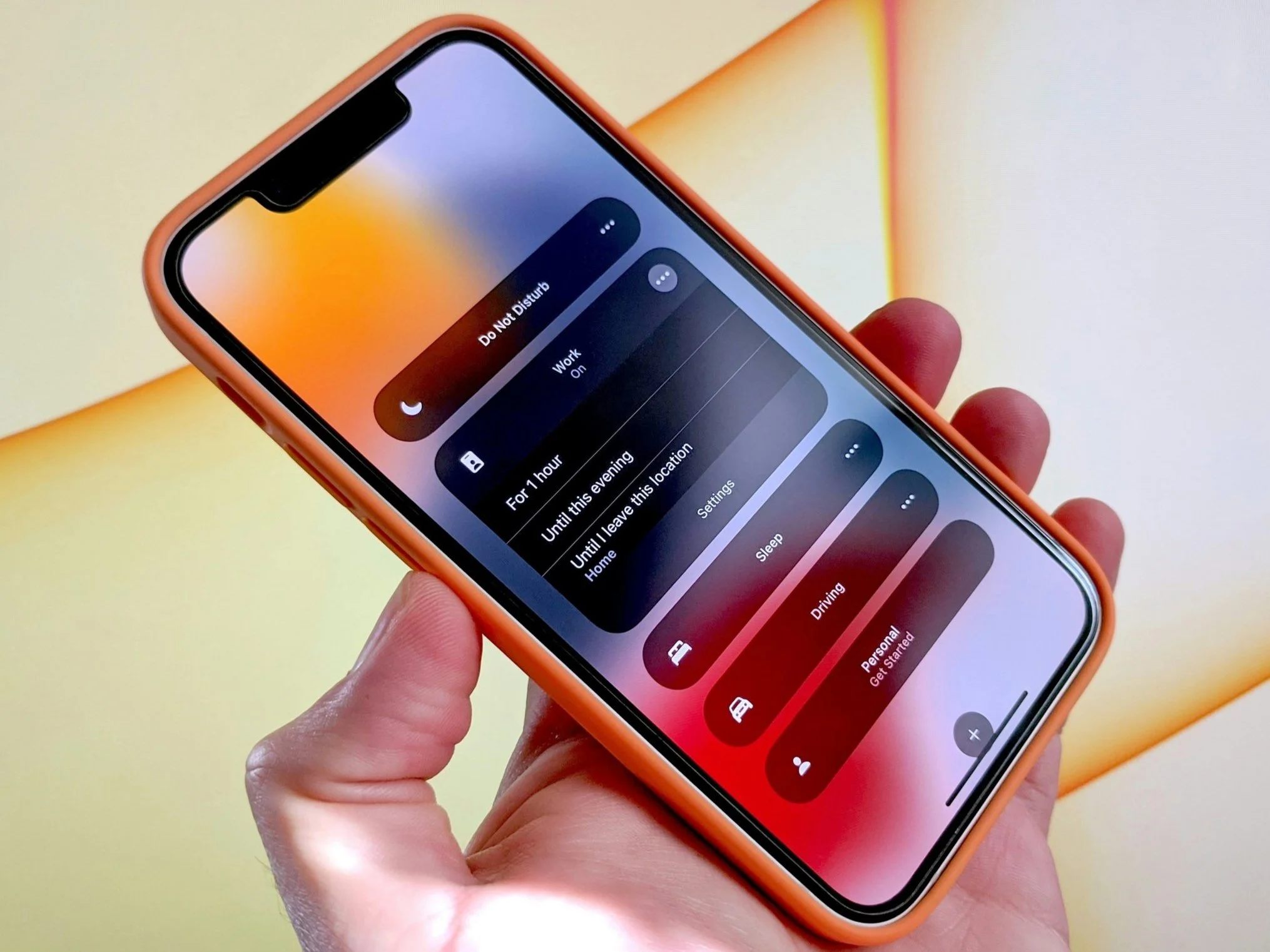How to Stay Off Your Phone and Reconnect With Life
In today's digital age, it's become increasingly challenging to pry ourselves away from our smartphones. Whether it's the endless scrolling on social media, responding to messages, checking emails, watching videos or shopping, our phones have become a constant presence in our lives. While smartphones offer numerous conveniences, it's crucial to strike a balance and take breaks to reconnect with the world around us.
It’s quite common to recognize that you’re on your phone more than you would like to be, but still feel unable to decrease that amount of time. There are many reasons for this hook to our phones, such as:
Dopamine loops — Apps (especially social media) are designed to release dopamine, keeping you coming back for more.
Avoidance — Phones offer easy distractions from stress, boredom, difficult emotions, or responsibilities.
Habit and Routine — Reaching for the phone becomes a mindless, ingrained habit during idle moments like while waiting in line, during commercials, or before bed.
Escaping Stress or Emotions — Scrolling can be a way to avoid anxiety, sadness, or overwhelm.
FOMO (Fear of Missing Out) — Constantly checking for updates, messages, or news to avoid feeling left out or missing something.
Validation-seeking — Habitual checking for likes, messages, or reactions to feel connected or affirmed.
Information seeking — Looking up news, facts, or updates constantly.
Notifications overload — Frequent pings and alerts pulling attention back repeatedly.
Lack of boundaries — No clear limits on when or where to use the phone can lead to constant use. Emails, messages, and productivity apps blur the line between work and rest.
Loneliness — Using the phone to feel connected, especially when feeling lonely or disconnected in real life.
Entertainment Overload — Endless access to games, videos, news, and other content makes it hard to stop.
Accessibility — It’s always within reach — easy to grab, easy to scroll.
Some common frustrations I hear from my clients
After work, I feel so fried that I don’t usually want to do anything other than sit and scroll on my phone.
I’m so tired after putting the kids to bed that I feel I only have energy to scroll through social media.
I pick up my phone to look something up or because I received a notification; the next thing I know 30 minutes have gone by and I don’t know how that happened.
Ways You Can Decrease Time on Your Phone
1. Determine the Boundaries You Want to Set
When are the times you can separate yourself from your phone? Can you schedule chunks of time throughout the day that you will not reach for your phone?
Give yourself permission to leave your phone in another room, or in a drawer or on a shelf when at work. Plan phone-free meals. Set your phone on Do Not Disturb for an hour (or more) before you plan to go to bed and don’t plan to look at it again until it’s time for you to start the following day.
2. Disable Non-Essential Notifications
Our phones are constantly vying for our attention with notifications. To stay off your phone, disable non-essential notifications from apps that distract you. Utilize the features of your smartphone that allow you to prioritize only what you need to be notified by, and silence the rest. This way, you won't be as tempted to pick up your phone every time it buzzes.
3. Use Apps to Limit Screen Time
Ironically, there are smartphone apps designed to help you reduce your screen time. Apps like Moment, Forest, and StayFree allow you to set daily usage limits and monitor your phone habits.
4. Clean Up Your Digital Environment
Regularly clean up your phone by deleting apps you rarely use and organizing your home screen with only essential apps. A less cluttered digital environment can make it easier to stay off your phone and stay focused on what truly matters.
5. Try an Occasional Digital Detox to Reset the Attachment to Your Phone
Every once in a while, consider going on a digital detox, which involves taking a break from all screens, not just your phone. Unplug for a day, a weekend, or even a week, and use this time to connect with the physical world. You might be surprised at how refreshing and liberating it can be.
6. Cultivate Mindfulness
Mindfulness practices can help you stay off your phone and live in the moment. Techniques like meditation and deep breathing exercises can make you more aware of your phone use triggers and help you resist the urge to pick it up when you don't need to. Learn more about mindfulness here.
6. Encourage Face-to-Face Interactions
Real human connections are invaluable. Make an effort to have face-to-face interactions with friends, family, or colleagues whenever possible. This will not only reduce your phone usage but also strengthen your relationships and provide a genuine sense of fulfillment.
7. Create a Daily Routine
When your day is planned, there are fewer idle moments where you instinctively reach for your phone out of boredom or habit. A routine helps you track where your time goes and when your schedule is more defined, it’s easier to notice when you’re spending too long on your phone.
8. Replace Phone Habits with Healthier Ones
By plugging healthier habits (like walking, reading, journaling) into the times you usually scroll, you shift from phone use as a default coping tool.
9. Remember Your Goals
Finally, remind yourself why you want to stay off your phone. Whether it's to improve your productivity, enhance your relationships, or simply enjoy life more fully, having clear goals in mind will motivate you to stick to your phone-free plan.
Staying off our phones in a hyper-connected world is a challenge, but it's a challenge worth undertaking. By setting boundaries, utilizing technology mindfully, and prioritizing real-life interactions, we can reduce our phone usage and rediscover the beauty of living in the moment. Unplugging from our devices is not about completely shunning technology but rather about finding a balance that allows us to lead more meaningful, fulfilling lives. So, put down that smartphone and start reconnecting with the world around you – you'll be amazed at the positive changes it can bring to your life.







